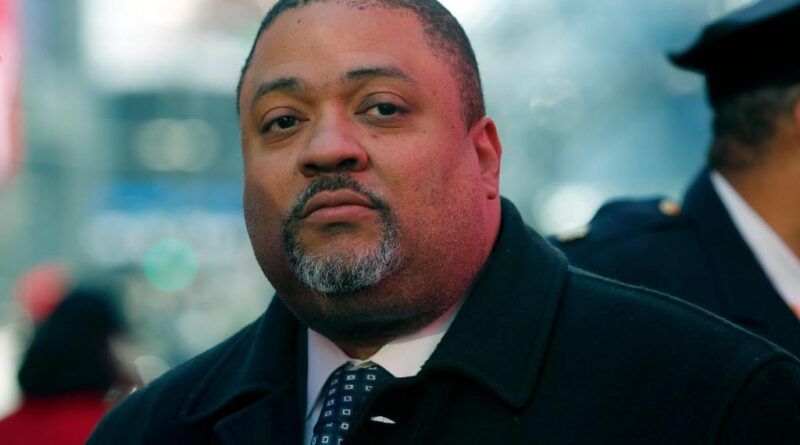Bragg’s Behavior Led Daniel Penny’s Jury to View the Trial as a Farce

The acquittal of former Marine Daniel Penny last Monday represents a setback for Manhattan District Attorney Alvin Bragg: The jury arrived at the reasonable conclusion that Penny acted justifiably when subduing the threatening vagrant, Jordan Neely, on a subway last May.
What’s even worse for Bragg is that the peculiar actions taken by his office might have influenced the jury to side with Penny.
After nearly five weeks of arguments and evidence, the jury – composed of seven women and five men – deliberated for almost a week, ultimately rendering a sound verdict on one of two charges: Penny did not behave in a criminally negligent manner that resulted in Neely’s death.
However, a question lingers: Why did the jury reach a deadlock on the stronger count of manslaughter, which carries a possible 15-year sentence, before acquitting on the lesser count, which has a maximum sentence of four years?
Logically, if Penny is not guilty of the lesser charge, he should also not be guilty of the greater one.
So, what changed the jury’s perspective from a deadlock on Friday to an acquittal on Monday?
One possible explanation is that Bragg’s office made it evident prior to the weekend that the trial lacked authenticity.
Imagine yourself in the role of a juror. After enduring weeks of jury selection and being present in court for seven weeks, you’ve viewed autopsy photos and listened to complicated medical testimony.
You’ve engaged in this process because you’ve been told from the onset how crucial this case is.
During voir dire, the prosecutor, ADA Dafna Yoran, asked you directly: Can you, if the evidence leads you to do so, convict this man of manslaughter?
In her closing argument, Yoran reiterated this obligation: “I told you it would not be easy,” she stated. “But you all confirmed that you could find someone guilty of recklessly causing another person’s death.”
Now, having meticulously examined this evidence through days of deliberation, you’ve requested a readback of the medical examiner’s testimony, reviewed videos, and sought clarification from the judge about what “reasonable” signifies concerning Penny’s mindset.
You then inform the judge that you’re deadlocked regarding the critical manslaughter charge.
Under the law, you cannot proceed with a verdict on the lesser charge until reaching a decision on the greater charge.
The judge instructs you to return and deliberate again, warning: “If you cannot reach a unanimous agreement… a new trial will have to be scheduled with a different jury.”
Upon returning, you indicate that you’re still at an impasse.
The judge then sends you back to the jury room only to call you back into the courtroom to announce that the manslaughter charge is “dismissed.” You are instructed to rest and deliberate the lesser charge on Monday.
Unaware of the behind-the-scenes arguments among the lawyers, you have no knowledge that the manslaughter charge was dismissed at the prosecutor’s request, despite the defense’s opposition.
The defense is concerned that this dismissal and the re-submission of the lesser charge signals to jurors that they should compromise by finding Penny guilty.
However, as a juror, you understand that this dismissal doesn’t make sense. You need not be an attorney to grasp the fundamental idea: If a jury cannot reach a verdict on the major charge, it results in a mistrial.
This allows the prosecutor another opportunity to retry the case, which seems rational: If the case is that significant—considering the implications of manslaughter—then the district attorney wouldn’t simply… give up and walk away.
Yet in this instance, the judge has effectively indicated, never mind.
How significant, then, is this case if everything you’ve dedicated the past two months to can just vanish without explanation?
Moreover, during her closing argument, Yoran indicated that Penny might not face imprisonment: “it is the judge… who decides… whether or not jail is warranted.”
You may not know it’s inappropriate for her to make such assertions.
But you might wonder: Why are we even here if the potential outcome is a mere slap on the wrist?
Is this merely a performance?
Upon returning to court last Monday, the jury reached a “not guilty” verdict on the remaining count in about an hour.
All the issues jurors appeared to be hung up on—cause of death, Penny’s state of mind—miraculously resolved themselves.
One interpretation is that jurors concluded: If the court isn’t taking the top charge against Penny seriously, why should we regard the bottom charge with any weight?
The jury’s acquittal was based on the evidence available, but it certainly didn’t injure the defense that Bragg’s office undermined a significant trial in its final moments.
Nicole Gelinas is a contributing editor to the Manhattan Institute’s City Journal.



